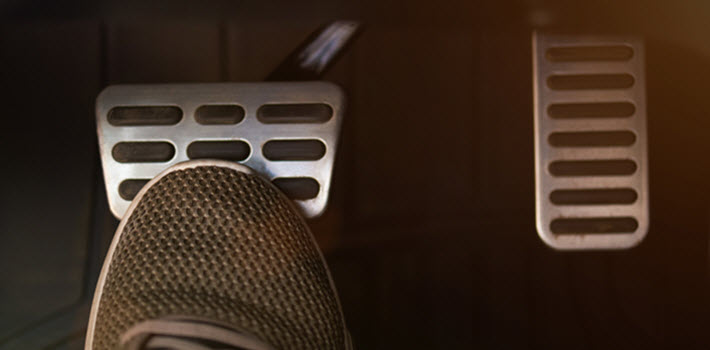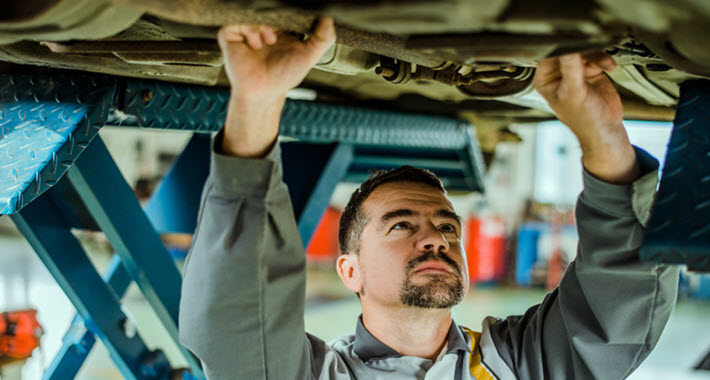-
Call Today:
(972) 418-1800
As the proud owner of a BMW, you expect your vehicle to live up to its promises of innovative design, revolutionary performance, and world-class durability and precision. Both your vehicle’s brake system and chassis, otherwise known as the car’s bottom frame, are essential to a BMW’s ability to run properly and safely. However, as with all other vehicle parts, the brakes and the chassis can get worn or experience damage that interrupts both durability and performance. In this article, we will explain a little more about your car’s brakes and chassis, discuss signs that they are in need of repair, and give you advice on where you can go for repairs.

The function of the brakes requires very little explanation. To put it simply, the brakes are responsible for decelerating the speed of your BMW. It can stop your vehicle’s movement all together. To drive without properly-functioning brakes is dangerous and puts both you and your passengers at risk.
If you notice any of these signs that your brakes are failing, it’s imperative that you have the issue diagnosed and fixed as soon as possible.
If you notice grinding, squealing, or screeching sounds whenever you press on the brake pedal, then your brake pads are probably worn and need to be replaced.
A leak in the brake lines could be causing a change in the amount of pressure needed to apply the brake. This might mean that it’s either easier or harder than usual to press the brake pedal.
Vibrations in the brake pedal or the steering wheel are a sign that you have an issue with your braking system. Your brake pads may be worn or your BMW may be in need of new rotors.
If you press on the brake pedal and notice that your car tends to pull to one side or another, it is most likely due to failing brakes. You should have the problem diagnosed and fixed as soon as you can, as this can be dangerous for everyone.
The chassis is the word used to singularly describe the entire bottom framework of your BMW. It protects and supports many of the most important parts to any vehicle’s function, including the engine, driveshaft, transmission, differential, suspension, and steering. As one of the most critical features of your BMW, the chassis requires proper maintenance and care in order to ensure that the rest of your vehicle runs smoothly.
As with all other parts of a vehicle, the chassis is susceptible to wear, and it can also be damaged in the event of a car crash or when driving in very rough road conditions. If you notice any of these signs, you should schedule an appointment to have your BMW’s chassis repaired.
The most obvious sign that the chassis needs repair is that there is a significant amount of rust on the underside of your car. The chassis can also be bent or warped from impact.
Since the suspension is housed in the chassis, any strange noises coming from your car’s suspension could be indicative of an issue with the chassis itself.
When driving, if you notice that you’re having a hard time steering or that you’re constantly turning the wheel in order to maintain a straight line on the road, then you should have the problem looked at right away to see if the underlying cause is a damaged chassis.
Because your BMW’s tires are connected to the chassis, an issue with the chassis could affect the alignment of the tires and lead to premature wear.

At Ultimate Bimmer Service, our highly-trained mechanics specialize in BMW repair and service. Whether you have an issue with your vehicle’s brakes that needs to be diagnosed and fixed, the chassis needs repair, or you require routine service such as an oil change or tire rotation, we are ready to complete the job quickly with expertise. If you live in or around the Carrollton and Dallas, TX areas, call us and set up an appointment today.